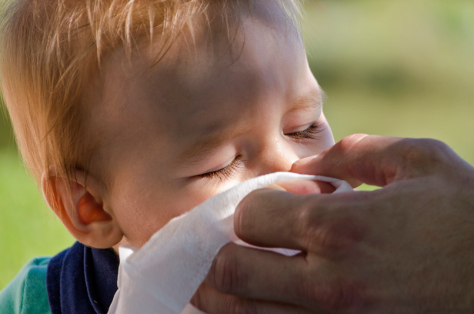Coughs and colds
Coughs and colds are very common viral illnesses that will affect most babies, children and adults at some point. Sometimes it can seem as if a cough or cold goes on for ages, but it's more likely that one bout of illness is quickly followed by another because the immune system is already weakened.
What are the symptoms of Coughs and colds?
Symptoms include a runny or blocked nose, cough, streaming eyes, sore throat and, in some cases, earache. If your baby has a sore throat she may be reluctant to feed, and one indication of an earache is if she repeatedly pulls on her ear. Coughs and colds may also be accompanied by a mild fever.

If your child develops a bacterial infection as a result of a cough or cold, symptoms can include a fever, drowsiness, wheeziness or difficulty breathing.
What are the treatments and remedies of Coughs and colds?
Most coughs and colds don't need medical treatment, and government advice is that over-the-counter medicines (with the exception of simple cough mixtures) and treatments other than paracetamol and ibuprofen shouldn't be given to children under the age of six years of age. The labelling on products to treat coughs does change though, so ask your pharmacist for the most up to date advice.
The best home treatment is to ease any pain, discomfort or fever with the appropriate dose of paracetamol or ibuprofen.
If you are breastfeeding, offer plenty of breastfeeds or, if you are formula feeding, you can offer extra drinks of cooled, boiled water, as you do not want your baby to get dehydrated.
You can help ease a stuffy nose by using saline drops or sprays, and this can be particularly helpful in babies who might otherwise have difficult in feeding because they can't breathe properly through their noses.
Antibiotics aren't any use in treating most coughs and colds because they're ineffective against viruses. Sometimes, though, a bacterial illness will develop secondary to the viral illness, in which case your GP might prescribe antibiotics.
This guide
The information in this Bounty A-Z of Family Health is not a substitute for an examination, diagnosis or treatment by a doctor, midwife, health visitor or any other qualified health professional. If in doubt, always speak to a doctor.
Bounty will not be held responsible or liable for any injury, loss, damage, or illness, however this occurs or appears, after using the information given on this website and in particular the A-Z of Family Health.
Further help
For health advice and information 24 hours a day, 365 days a year, the NHS offers call and web services. You can also visit NHS websites for services, health information and health news at nhs.uk
- England – call 111 from any landline or mobile phone free of charge, or visit nhs.uk
- Scotland – call 111 from any landline or mobile phone free of charge, or visit nhs24.com
- Wales – call 0845 4647 , or visit nhsdirect.wales.nhs.uk
- Northern Ireland – visit hscni.net